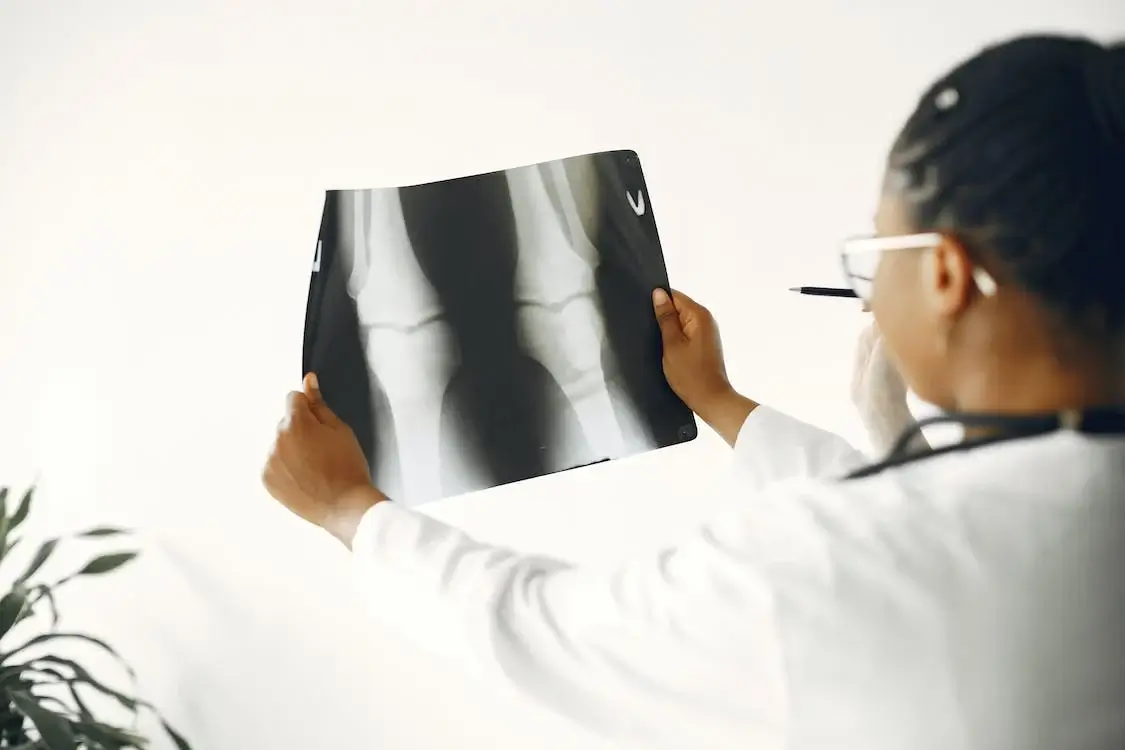Orthopaedics is a medical speciality that focuses on diagnosing, treating and preventing disorders of the musculoskeletal system, which includes bones, joints, muscles, ligaments and tendons.
Orthopaedic surgeons are highly trained specialists who play an important role in helping patients maintain their musculoskeletal health and mobility. A doctor must be a licensed and accredited surgeon to practise orthopaedics, and often, orthopaedic surgeons belong to a medical association, such as the British Orthopaedic Association (BOA).
The practice of orthopaedics involves many different types of surgical and non-surgical techniques to manage chronic and acute conditions, such as hip or knee replacements. When treatment involves physically cutting into the body to repair, remove or readjust any part of the musculoskeletal system, it is called orthopaedic surgery.
Orthopaedic surgeries in general are performed to alleviate pain, restore function, and improve the quality of life for patients with musculoskeletal conditions or injuries.
When might I need orthopaedic surgery?
Orthopaedic surgery is typically recommended when non-surgical treatments, such as physical therapy or medication, are not effective in improving symptoms or normal function. The decision to undergo surgery, and the type of surgery selected, will depend on the specific condition, the severity of the symptoms, and the individual's overall health and lifestyle factors.
Some examples of conditions where orthopaedic surgery might be necessary include:
- Traumatic injuries such as fractures and dislocations
- Joint damage caused by osteoarthritis or rheumatoid arthritis
- Benign or malignant tumours in bones or soft tissues
- Certain congenital conditions resulting in skeletal abnormalities, such as scoliosis or hip dysplasia
- Sports injuries such as ligament or tendon tears
- Degenerative conditions such as herniated discs or spinal stenosis
- Infected tissue, such as in osteomyelitis or septic arthritis
What can I do to prepare for orthopaedic surgery?
Pre-operative care for orthopaedic surgery involves a series of steps to ensure that you are in the best possible health before undergoing surgery. You will be informed about what to expect before, during, and after the surgery, as well as any potential risks or complications associated with the procedure.
You may be instructed to restrict your eating and drinking before the procedure and in some cases to perform certain exercises before surgery to strengthen the affected area and improve postoperative outcomes. If you smoke, you will be encouraged to quit before surgery, as smoking can increase the risk of complications.
You will undergo a thorough medical evaluation to determine your overall health status and to identify any pre-existing conditions that could affect your surgery. This evaluation may include blood tests, electrocardiograms, and other diagnostic tests. You will also be asked to provide a detailed list of all your medications, including over-the-counter drugs, supplements, and herbal remedies. The surgeon may ask you to stop taking certain medications before surgery.
You will meet with an anesthesiologist to discuss the type of anaesthesia that will be used during the surgery. Depending on the type of surgery, you may need to undergo additional testing before the procedure. This may include imaging tests such as X-rays, CT scans, or MRIs.
What does postoperative care for orthopaedic surgery look like?
Postoperative care for orthopaedic surgery is an important part of the recovery process and functions to promote healing and prevent complications. Follow-up appointments will often be conducted to monitor progress and assess the healing of the affected area.
Good nutrition and hydration are important for the healing process. You will be encouraged to eat a healthy diet and drink plenty of fluids to promote healing. You may be referred to physical therapy to help restore mobility and strength to the affected area. Physical therapy may include exercises, stretches, and other techniques to promote healing and reduce the risk of complications.
Depending on the type and severity of the surgery, you might be given pain medications to manage postoperative pain. You may also need to take antibiotics to prevent infection or blood thinners to prevent blood clots. The type and dosage of medication will depend on the type of surgery and your medical history.
Your surgical incision will be carefully monitored and kept clean to prevent infection. You may be asked to change dressings and apply topical ointments to the incision site.
An Overview of Orthopaedic Surgery
Orthopaedics is a rapidly growing field, with new treatments and technologies constantly being developed. Each orthopaedic surgery is tailored according to the specific needs of the patient and conducted by specialists in the field. It is essential to follow your healthcare provider's instructions carefully before and after surgery and to attend all follow-up appointments to ensure a successful recovery.


 71–75 Shelton Street, Covent Garden, London, WC2H 9JQ
71–75 Shelton Street, Covent Garden, London, WC2H 9JQ +44 (0) 20 3376 1032
+44 (0) 20 3376 1032



